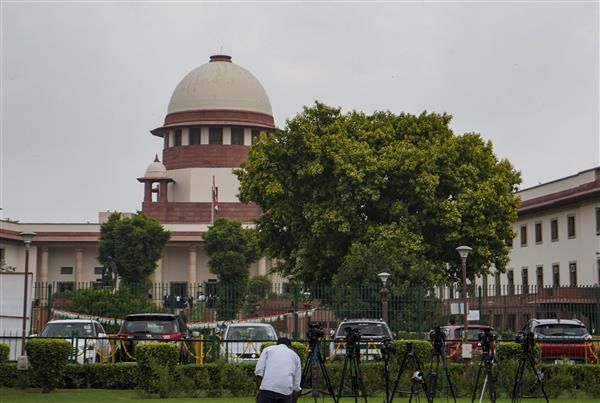No partition of property by metes and bounds in Chandigarh, says Supreme Court
Satya Prakash
New Delhi, July 27
Holding that there can’t be partition of property by metes and bounds in Chandigarh, the Supreme Court has said that the only resolution in a suit for partition of joint property would be sale by way of auction.
“It is not a matter of dispute that in terms of law laid down by this Court in Residents’ Welfare Association and Another vs Union Territory of Chandigarh and Others (2023) interpreting the 1960 Rules, there cannot be partition of property by metes and bounds at Chandigarh. Hence, the only solution was for sale of property by way of auction,” a Bench of Justice CT Ravikumar and Justice Rajesh Bindal said.
In its on January 10, 2023, verdict in Residents’ Welfare Association and Another vs Union Territory of Chandigarh and Others, the top court had prohibited fragmentation/division/ bifurcation/apartmentalization of a residential unit in Phase-I of Chandigarh, highlighting the need to strike a proper balance between sustainable development and environmental protection.
“We hold that in view of Rule 14 of the 1960 Rules, Rule 16 of the 2007 Rules and the repeal of the 2001 Rules, fragmentation/division/ bifurcation/apartmentalization of a residential unit in Phase I of Chandigarh is prohibited,” it had ordered.
Issuing a slew of directions to preserve the heritage status of Corbusian Chandigarh, the Bench had directed the Central Government and Chandigarh Administration to freeze FAR and not to increase it any further. It had also directed them to restrict the number of floors in Phase¬I to three with a uniform maximum height as deemed appropriate by the Heritage Committee keeping in view the requirement to maintain its heritage status.
“The Chandigarh Administration shall not resort to formulate rules or bylaws without prior consultation of the Heritage Committee and prior approval of the Central Government,” the Bench had said in its verdict which effectively put an end to the practice of converting single residential units into apartments in Chandigarh.
Now, reiterating its 2023 ruling in a partition suit involving more than a dozen parties, the top court asked the parties, many of whom had rented out their respective shares of the property, to render accounts.
Initially, the trial court had passed a preliminary decree, asking all the co-sharers of the suit property to render accounts which was challenged before the Punjab and Haryana High Court. The HC absolved the co-sharers in the property having a 16% share (who had challenged the Trial Court’s order) from rendering their accounts, leading to the matter landing in the top court.
Writing the judgment for the Bench, Justice Bindal clarified “that after the sale of the property if any of the co-sharers fail to contribute any amount to the common kitty for distribution amongst all the co-sharers as determined by the Trial Court, the distribution of the amount so collected after the sale of the property shall be reduced to that extent from the share of that co-sharer.”
As the suit for partition was pending since 2005 at the stage of passing of preliminary decree, the Supreme Court on July 23 directed the trial court to dispose of the matter in nine months.









